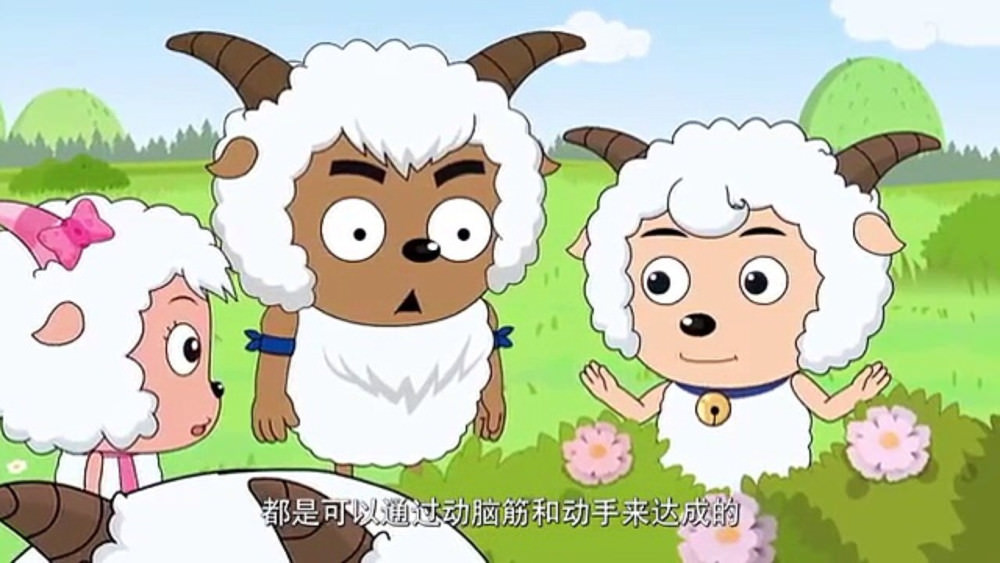Pleasant Goat and the Big Bad Wolf


China
Pleasant Goat and the Big Bad Wolf is China’s most popular animation, debuting on television in 2005 and with over 1000 episodes and seven feature length films since. It is screened on over 40 channels in mainland China, translated into 20 languages, and broadcast throughout Asia following a license granted to Disney in 2010. The show follows a group of goats that live happily in Goat Village on the Green Pasture, except when they are avoiding the attempts of local wolves to eat them. In the vein of Looney Tunes’ Wile E. Coyote and the Roadrunner, the ineffective Wolffy has his plans repeatedly foiled by the school-aged goat Weslie and his friends.
Pleasant Goat received negative attention in 2013 when a nine-year-old boy tied two brothers, aged eight and four, to a tree and set them on fire causing severe burns. He confessed to imitating the action of an episode of Pleasant Goat, which has been broadly criticised for its gratuitous cartoon violence. Commentary on the show argued that Wolffy has been threatened or struck with a frying pan (usually by his wife Wolnie once he has failed to catch the goats) 10,000 times, while Weslie has been electrocuted and placed in boiling water hundreds of times (although such figures are difficult to verify). The parents of the injured boys filed a lawsuit against Pleasant Goat’s production company, Creative Power Entertaining, which was ordered to pay 39,000 yuan to cover medical expenses, while the older boy’s parents were required to pay four times that amount. The court noted that because the cartoon is aimed at children it should carefully scrutinise its violent representations and provide warnings to children about fantasy and imitation. Non-state sources pointed to the absence of a ratings system as a reason that cartoons made overseas and not intended for young children were available for all viewers in China.
Following this episode, China’s State Administration of Radio, Film, and Television (SARFT, now SAPPRFT), as well as the broadcaster CCTV, publicly criticised Pleasant Goat, but also cartoons more generally (including the popular Boonie Bears) for teaching violent behaviour, simplifying physical harm, and sexual innuendo, among other things. Pleasant Goat was taken off the air. In the ensuing debate in 2013, SARFT stated that cartoon producers should pursue their “sacred duty” to promote the “healthy growth” of children and announced the “Urgent notice to strengthen the content censorship of domestic TV cartoon” to its provincial bureaus. SARFT also claimed that “content standards for domestic TV cartoon”《国产电视动画片内容标准》would soon be drafted and passed, however no such regulation currently exists. Creative Power Entertaining also agreed to modify past episodes of Pleasant Sheep to tone down its violence. – Liam Grealy
Further reading:
– Fung, A. (2013). Pleasant Goat and Grey Wolf: Creative industry, market and the state-animated modernity in China. International Journal of Cultural and Creative Industries. 1(1): 54-65.
– Weihua, Wu. (2014). Individuality, state discourse and visual representation: The imagination and practices of the iGeneration in Chinese animation. In M.D. Johnson, K.B. Wagner, T. Yu & L. Vulpiani (eds) China’s iGeneration: Cinema and moving image culture for the twenty-first century, (pp. 57-72). New York & London: Bloomsbury Academic.